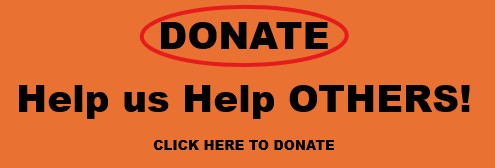Budgeting Essentials
Questions You Should Ask to Save Money

Have you ever just assumed things are the same way that they have always been?
Here’s my story about assumption

We took our truck into the shop for repairs the other day.
It used to be, that when we took vehicles into the shop for repairs,
the first thing we heard was this:
“We must hook your vehicle up to the diagnostic machine.
The cost will be $125, but if you have us do the work,
we will apply that diagnostic fee to your repairs.”
When we got the bill, there was no diagnostic fee
in the list of itemized repairs. Upon checking, all the expense lines
were the same as the amount we were quoted.
So far, so good, right?
I heard the same story when I recently arrived with my pickup
at the dealer. This time though, they said
it would take up to one week to get my pickup on the diagnostic machine.
When the service guy called me to report what was wrong
and how much it would cost, the list was long and expensive.
However, Junior (I’ve changed his name) also assumed that
I would only agree to repair the must-fix items.
So, he had come up with a list of what absolutely
had to be fixed and quoted me the dollar total for these items.

Because he had given me the individual pieces,
I added them up and included tax.
The total did not match.
So, I asked him what the difference was.
And he said it was the diagnostic fee.
So now, this diagnostic fee
which used to be absorbed by the cost of the vehicle repairs,
is now simply added onto the bill.
(I do realize that the argument could be made
about the earlier repair shops not itemizing the diagnostic fee,
but simply hiding it inside the cost of the repairs.)
Lesson learned:
Never assume you understand what is being said.
Assumption can be a dangerous and costly thing.
Especially today.
People can say anything they want.
So, it is always in your best interest to get what people tell you in writing.
That way, you have proof of what has been promised.
In my case, assumption cost me the diagnostic fee.
However, as you find yourself entering more involved transactions,
the cost for assumption increases accordingly.
Let’s say for example, that you are shopping around
for auto insurance.
What type of questions should you be asking?
And equally important, what might you not even consider asking?
Below I will include a Car Insurance article from Kiplinger
Some of the things I want to call your attention to
in this article
include the following:
The cost to insure your teenager as a driver.
What if you have a speeding ticket in your past?
What if you or a family driver has had an auto accident in the past?
What if there is a previous DUI record from your mischievous younger years?
You may not have expected this one:
How does my current or past credit score affect my auto policy
in dollars and cents?
Here is the link to that article –
the story is a quick read and you will learn much. ( https://www.kiplinger.com/personal-finance/car-insurance/car-insurance-costs-skyrocket-in-2024 )
Pay attention to where Kiplinger talks about the correlation
between increasing coverage limits
and how that affects your premium – you may be surprised
to discover what you can learn by asking the right questions.
Always Ask for Discounts
Do not assume
that you will automatically receive all the discounts
that you may be entitled to when searching for and comparing auto insurance.
I am going to provide another link for you to read
that will help you immensely.
I challenge you to find the 10 instances of the word “discounts”
in this article.
Read them, do more research,
then use them to your financial benefit
when they apply to your personal situation.
Here is that link for you to check out now.
https://www.nerdwallet.com/article/insurance/what-affects-car-insurance-rates
Remember the Goal:
Ask Questions -> Save Money $$$
Truth in Our Advertising:

Currently, the only revenue Dan the Budget Man
and Budgeting Essentials receives comes from the products we sell.
If you would like to purchase a product, we appreciate it so much!

The first one is free. (Free Debt relief workshop)
- The second one is a paid product so you can do your bookkeeping quickly and efficiently without a subscription. (SST)
- The third one is a paid product that takes you into a deep-dive of how to take control of your money and pay off your bills. (Debt Relief & Budgeting Program)
Economic times got you down? Free Help Here:
Try our free and simple Debt Relief Workshop (<- Click and go)
Tired of paying every month to get your books done quickly?
It’s called SST – short for
“Spend Smart Tool” (<- Click to learn more)
Best News = Not a Subscription model. One price. One time. Lifetime access.
Debt Relief & Budgeting Program
Click the link above to learn more.
What do you want money help with?
Describe in one sentence what you need money help with.
Want more money help INSPIRATION?
See You next time!

Copyright
© © Budgeting Essentials © Dan the Budget Man © BudgetET.com

